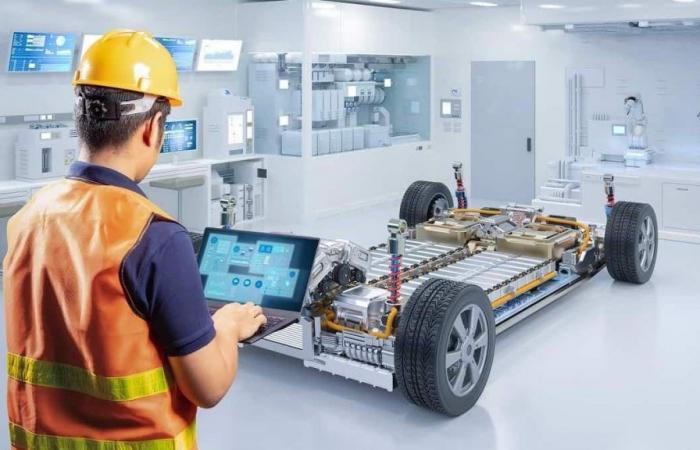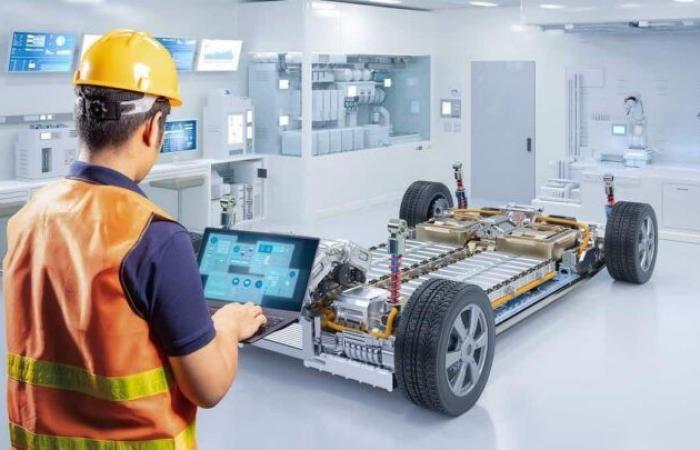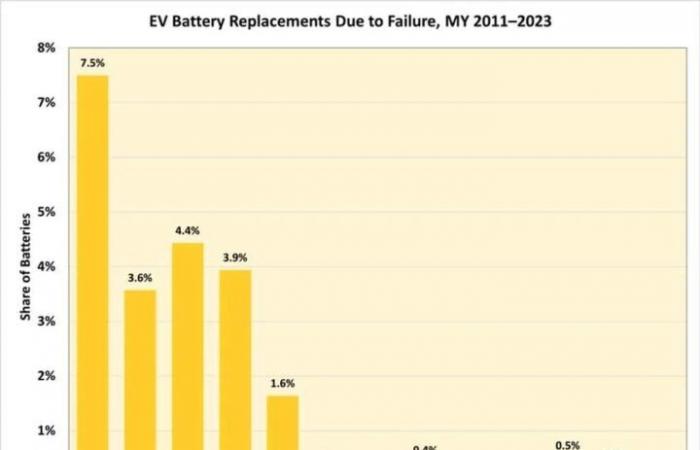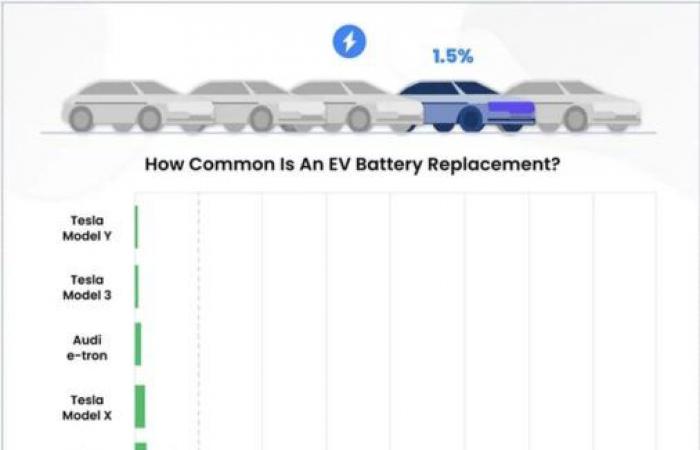One of the concerns of potential electric car owners is related to the battery, when it reaches the end of its life. However, as time passes, the news is good: tram batteries are increasingly reliable.
Study reveals that batteries rarely fail
One of the biggest rumors on social media is that electric car batteries will have to be replaced after a few years, at high costs for their owners. However, the data is proving the critics wrong and, according to information compiled by analysts, batteries fail very little and are failing less and less.
The study was carried out by the consultancy company Recurrent, which compiled data from around 15,000 electric cars from 2011 to 2023, and showed that in the first generation (2011-2015), battery replacements due to breakdowns were much higher than in later generations.
According to Recurrent data, in 2011, the battery failure rate reached its worst value, 7.5%. But from then on, the numbers have been gradually improving and, in the following years, they went from 1.6% to 4.4%, which indicates that the improvement in the experience of battery manufacturers led to a constant reduction in failure rates.
As we can see in the graph, from 2016 onwards there was a radical change in battery replacements due to failures. As of 2016, this value reached 0.5%, but most cases ranged between 0.1% and 0.3%.
One of the main issues is the fact that these problems were covered almost entirely by manufacturers' warranties, with different coverage.
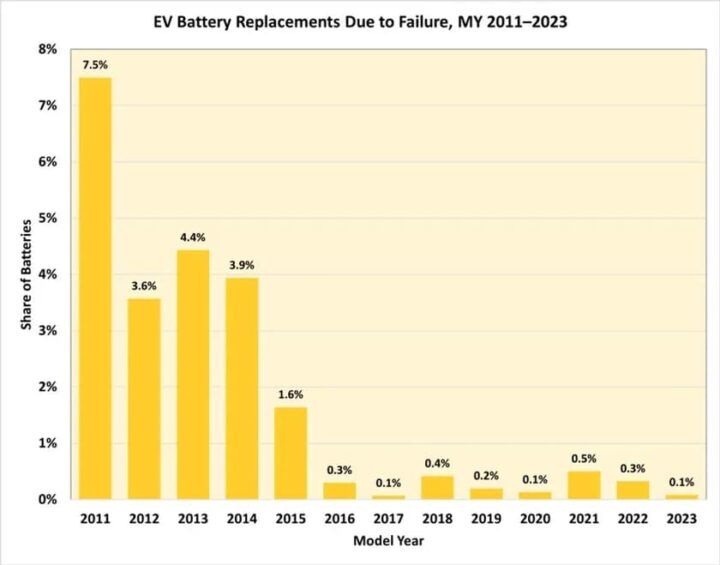
For example, the Renault offered its ZOE 8 years or 160,000 km for its battery, or unlimited warranty for ZOE in battery rental versions. Same for BMW i3, Opel Ampera, Volkswagen e-Golf, 8 years or 160,000 km. In turn, Tesla offered 8 years of unlimited kilometer coverage on its first Model S and X models.
The report indicates that the improvement in battery performance in terms of reliability is driven by factors such as: the experience that battery manufacturers are accumulating over the years, the evolution of increasingly mature technology, as well as other factors such as active liquid cooling of batteries, new thermal management strategies, as well as the arrival of new chemistries such as robust and reliable LFPs.
By model, the highest rate of battery failures was observed in the early Tesla Model S and Nissan LEAF. Pioneers whose owners particularly suffered from the lower reliability of the first generations of batteries.
- 2013 Tesla Model S (8.5%)
- 2014 Tesla Model S (7.3%)
- 2015 Tesla Model S (3.5%)
- 2011 Nissan LEAF (8.3%)
- 2012 Nissan LEAF (3.5%)
As we can see in the following graph, the worst battery error values are accounted for by two models, the Chevrolet Bolt, Bolt EUV, and the Hyundai Kauai (Kona).
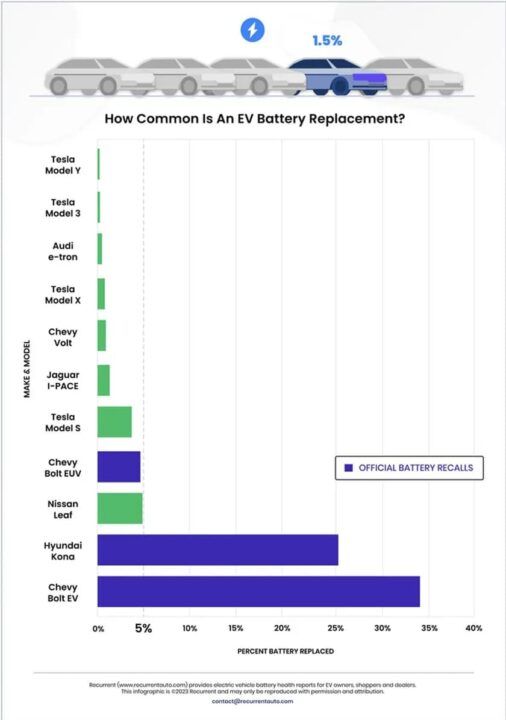
This is due to the fact that both suffered a production failure in their LG batteries. This error led to a massive recall to replace the faulty batteries, which caused several fires.
Also in the hot zone are the Nissan LEAF and the Tesla Model S, which, as already mentioned, were among the first to arrive and the first to go through the tough initial learning process. Especially in the case of the LEAF, whose degradation was very significant.
The remaining vehicles had almost no problems with their battery, in a trend that is decreasing with minimum error rates that, in 2023, reached just 0.1%.

